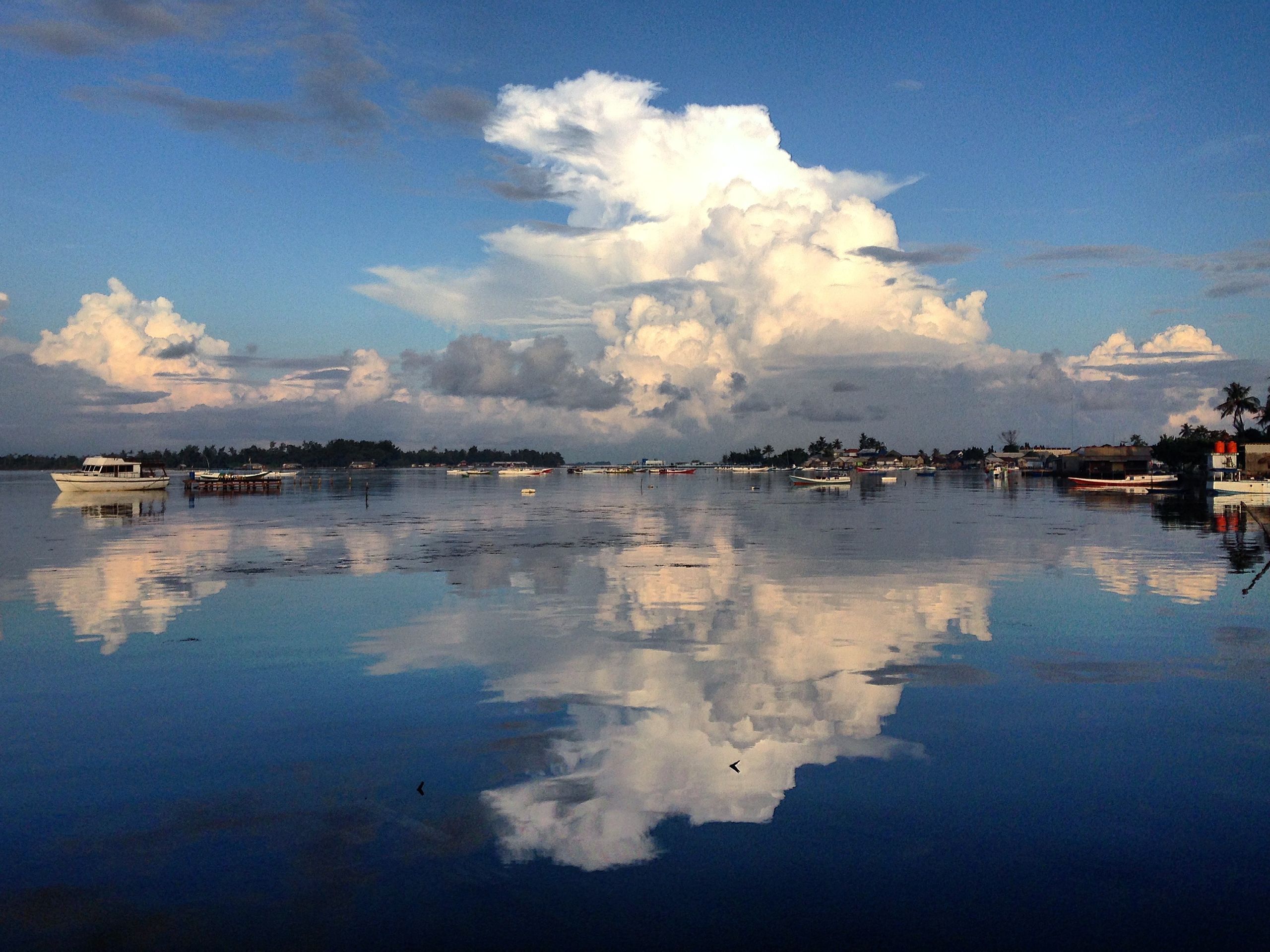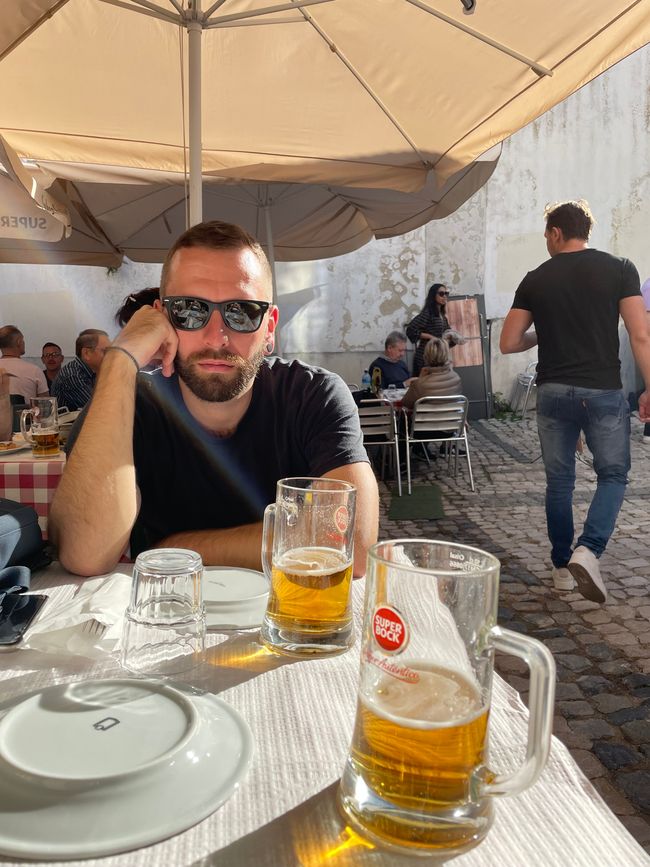Cochabamba
የታተመ: 18.09.2024
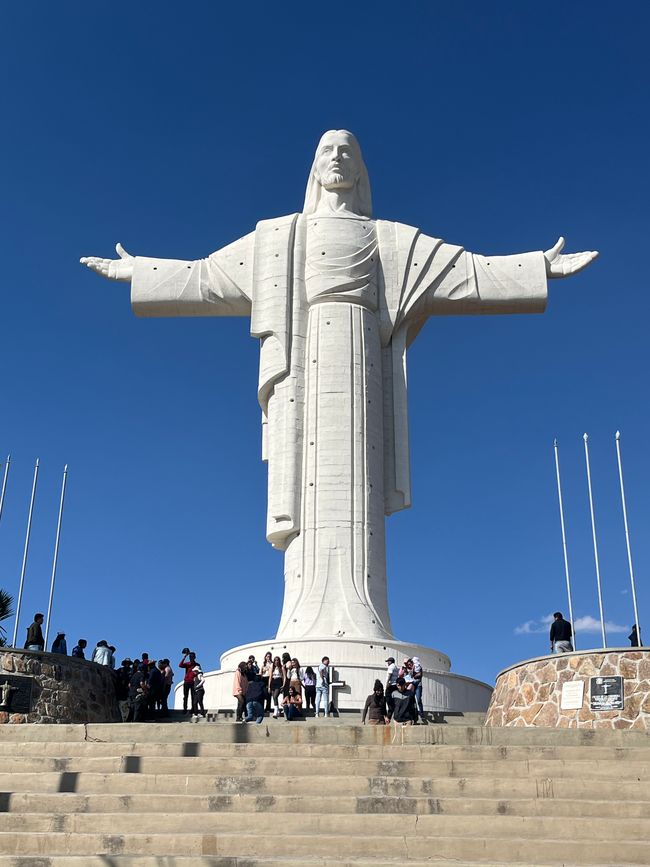
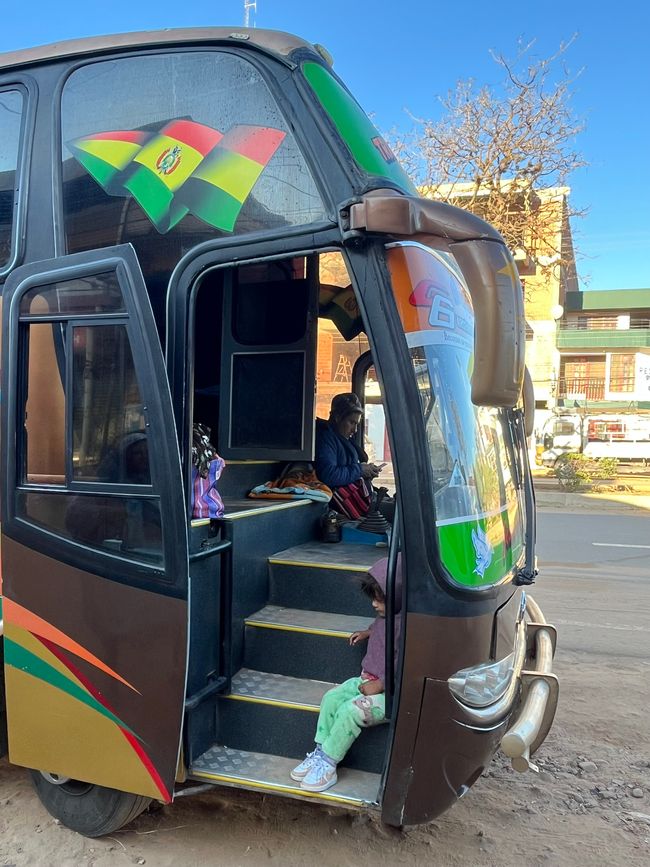
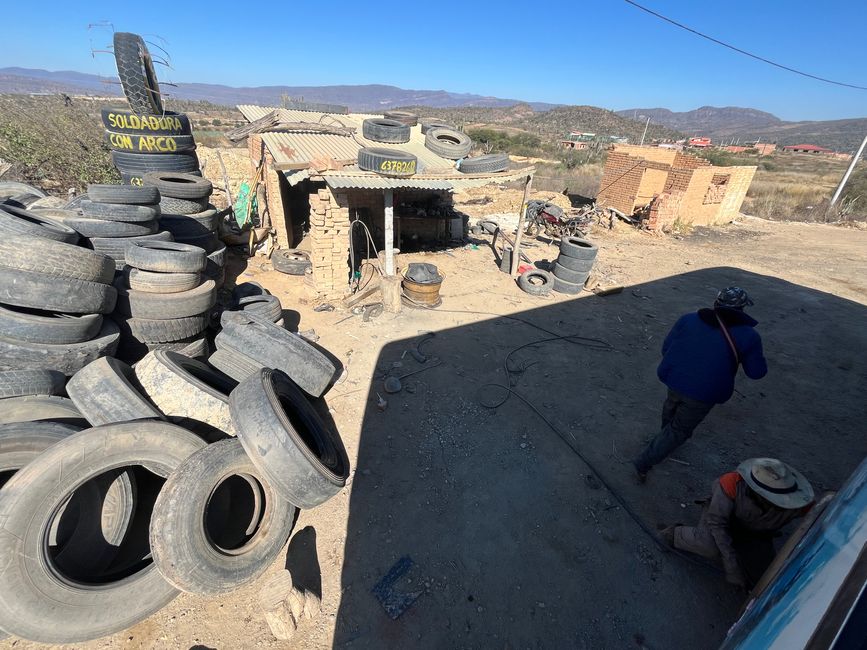
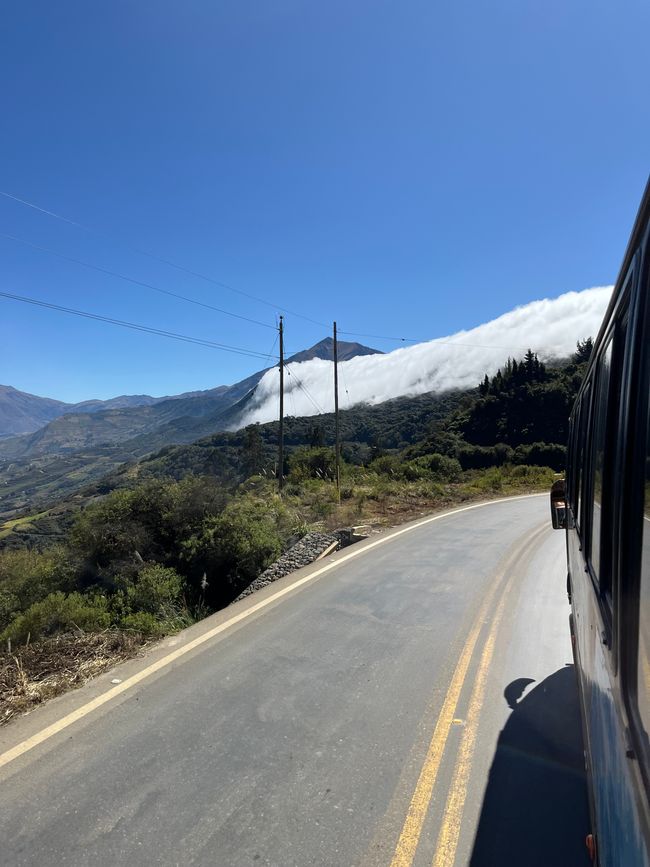
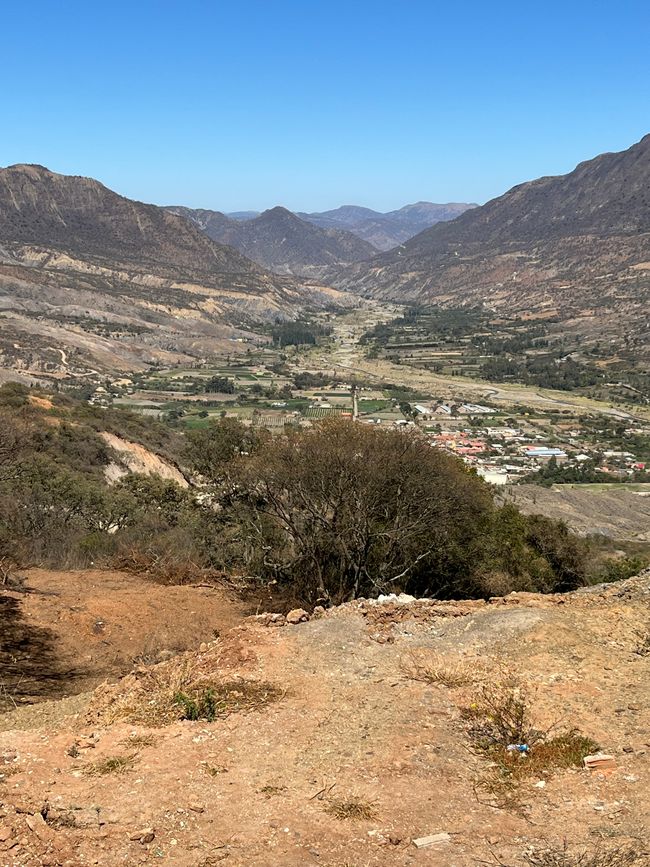
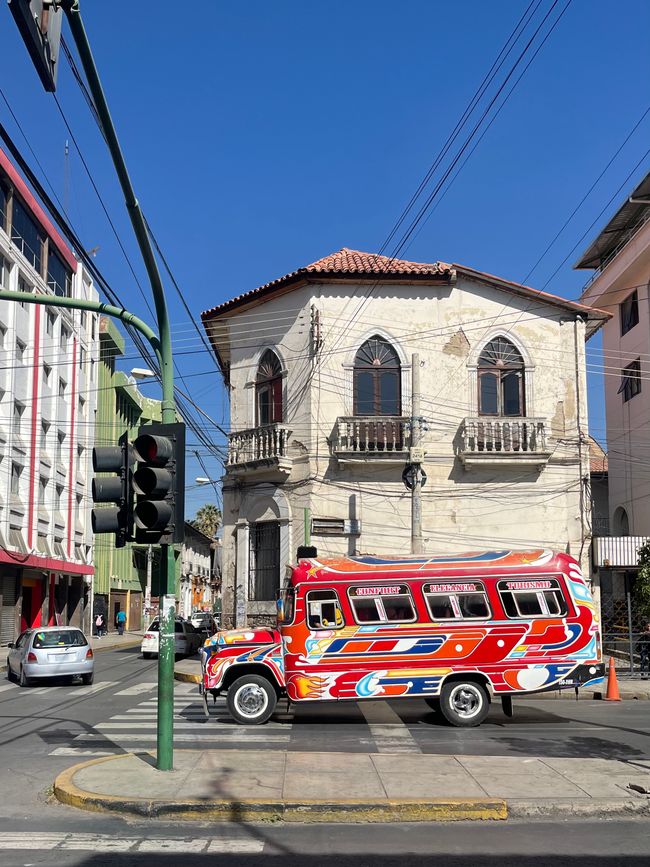
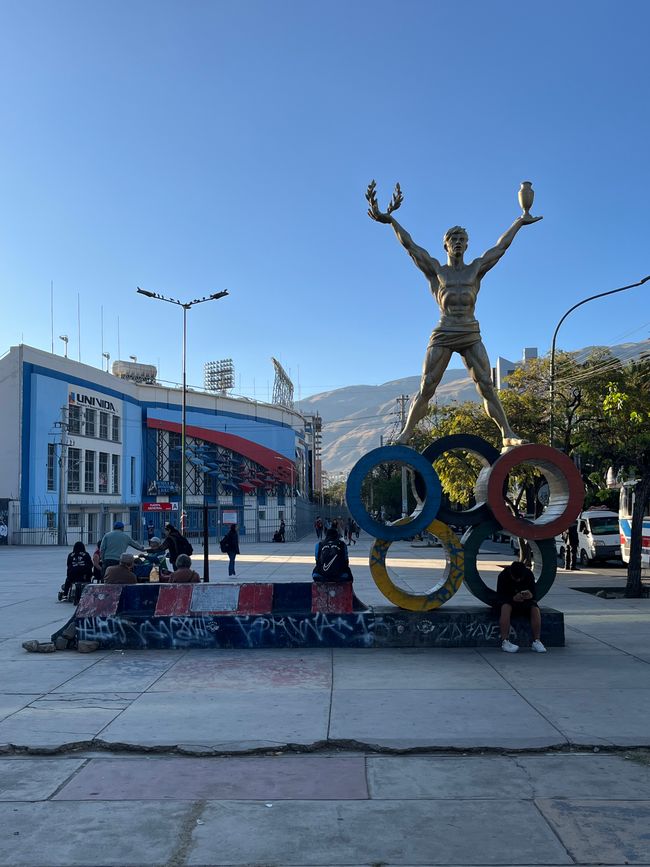
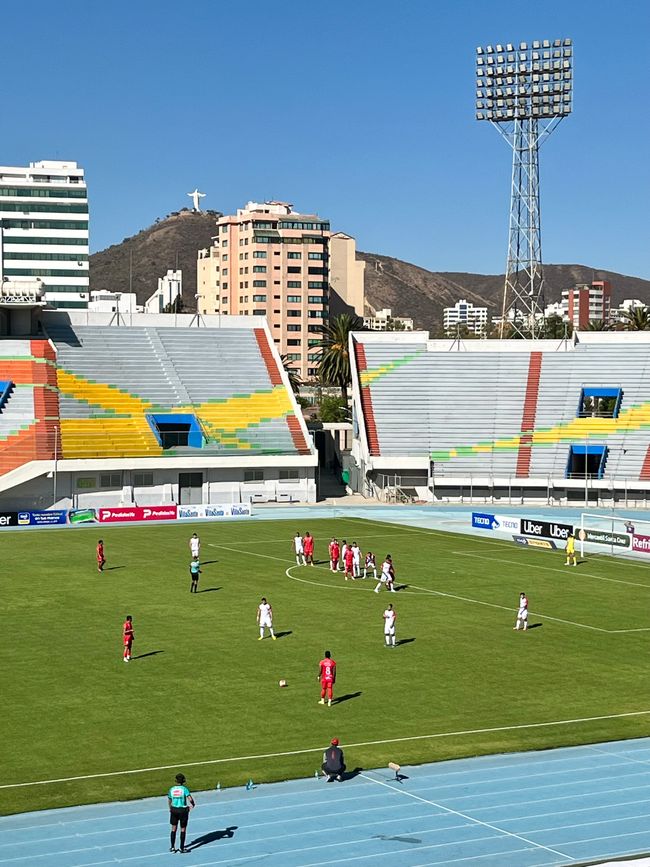
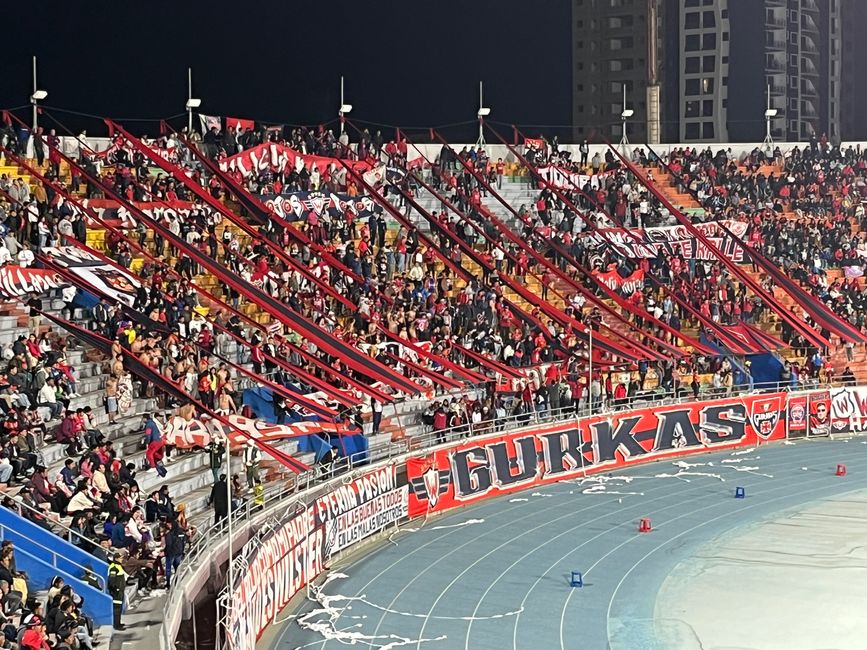
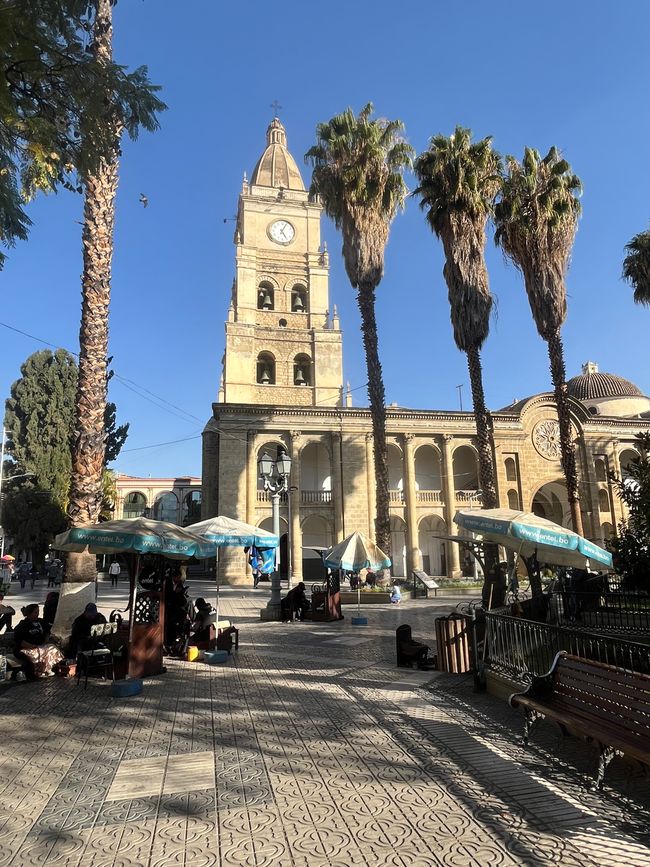
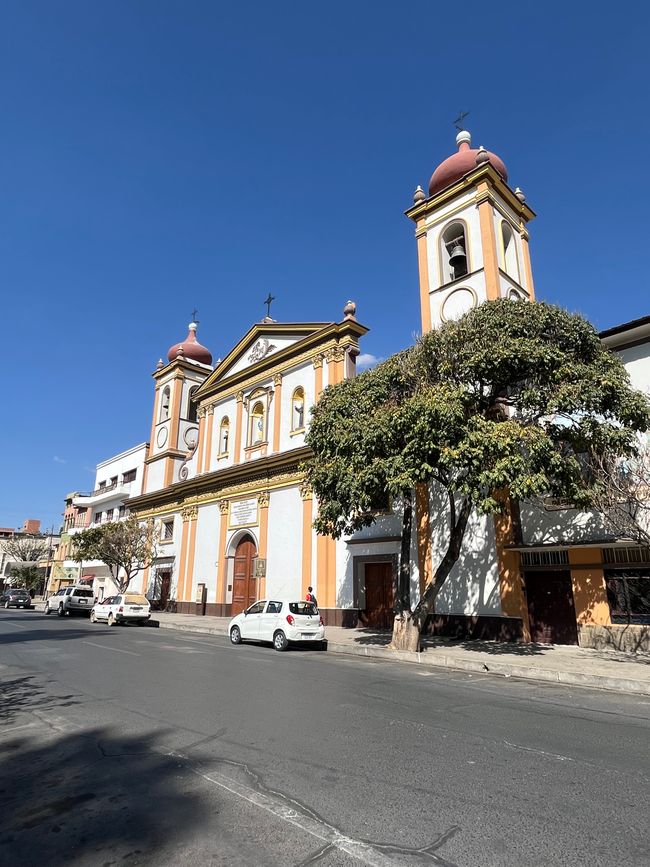
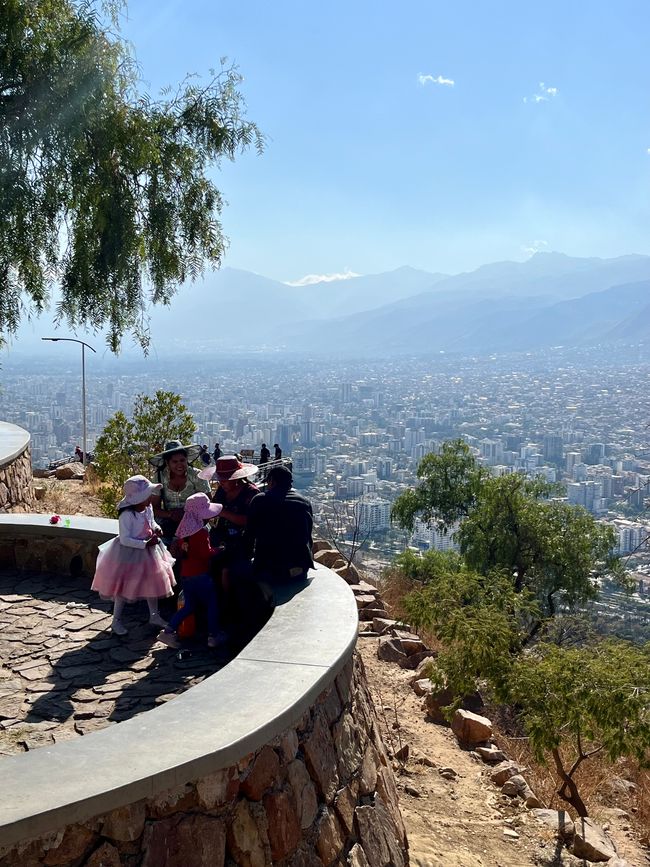
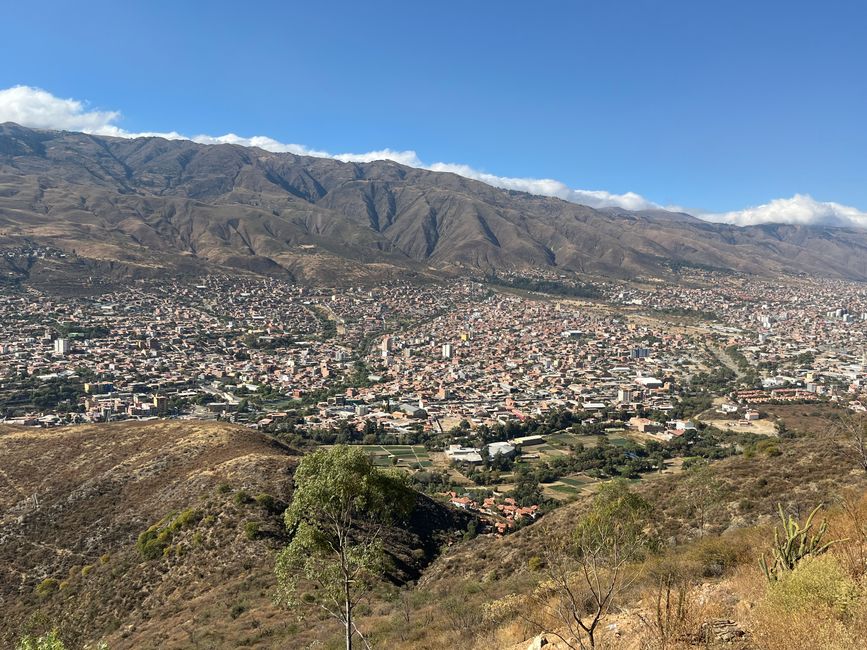
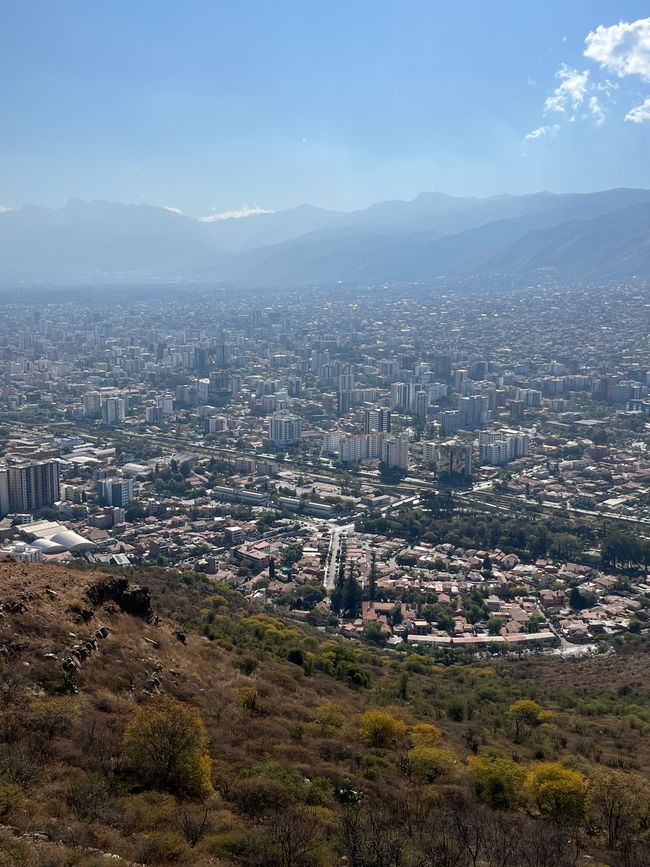
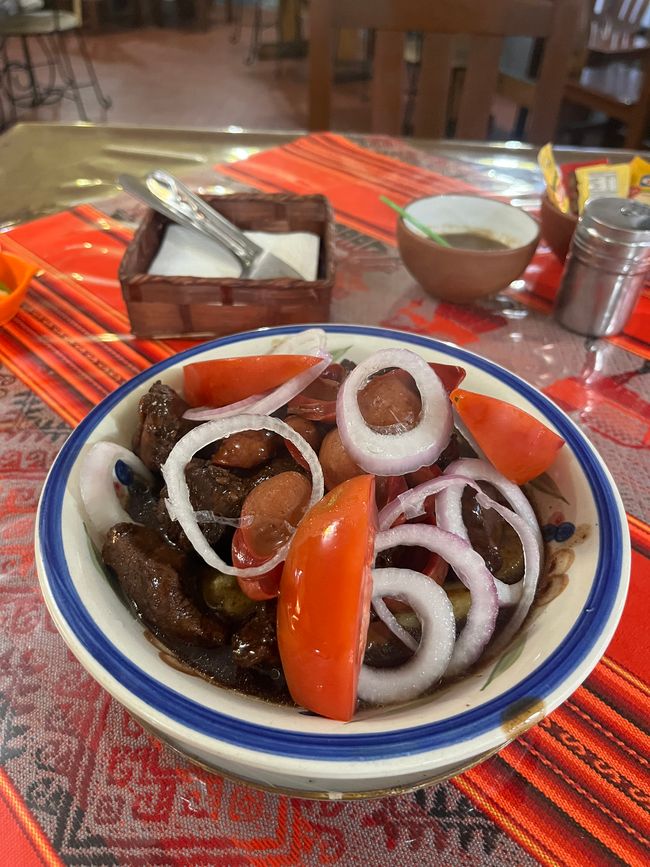
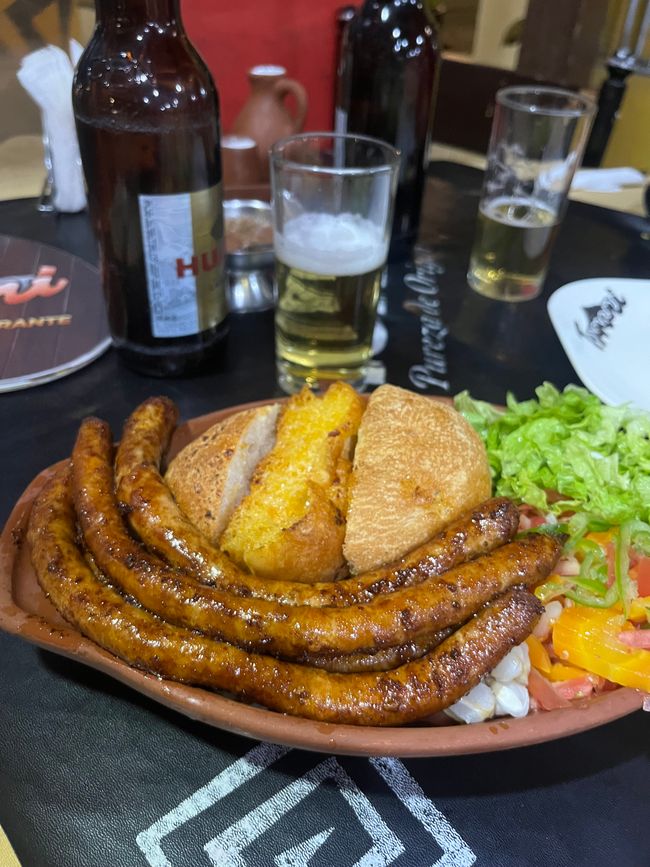
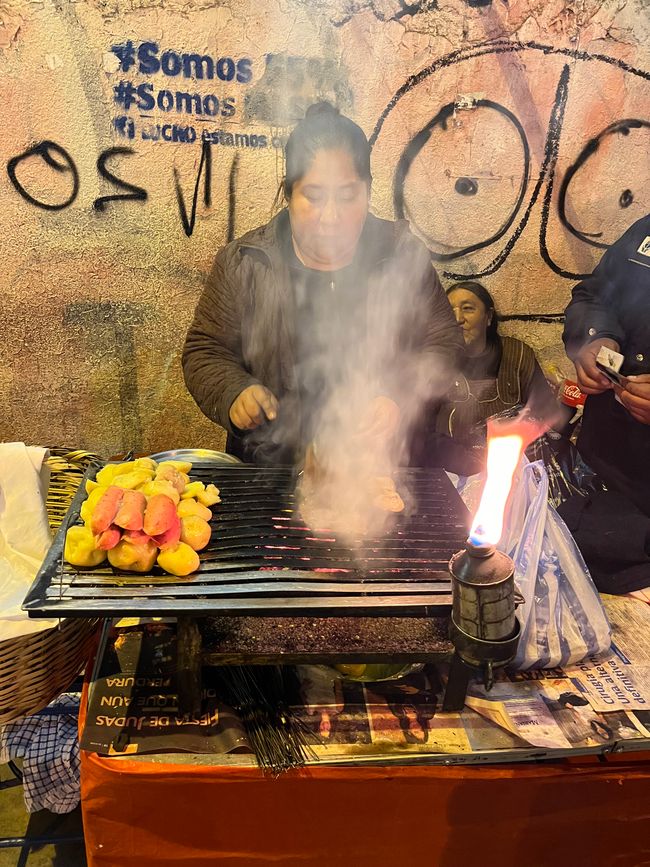
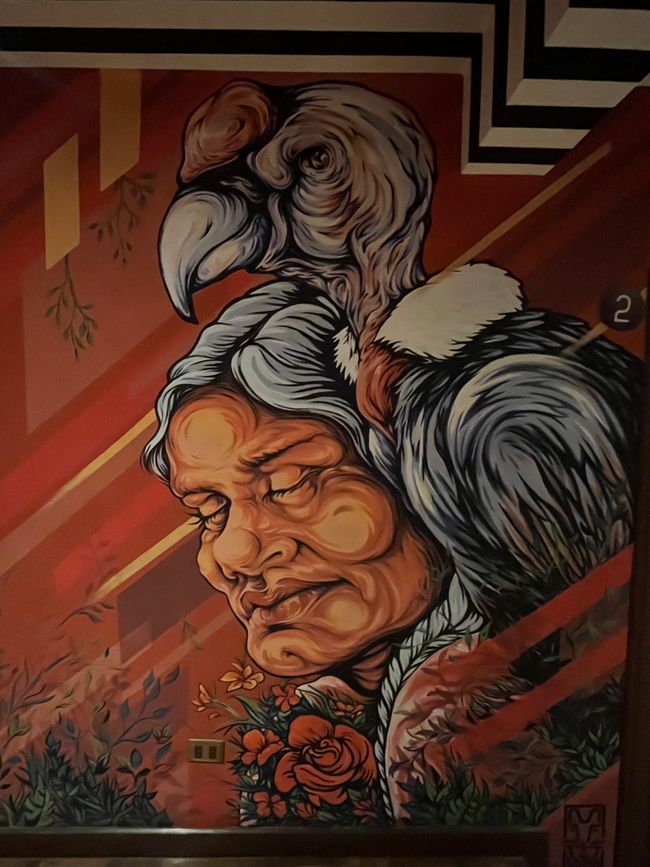
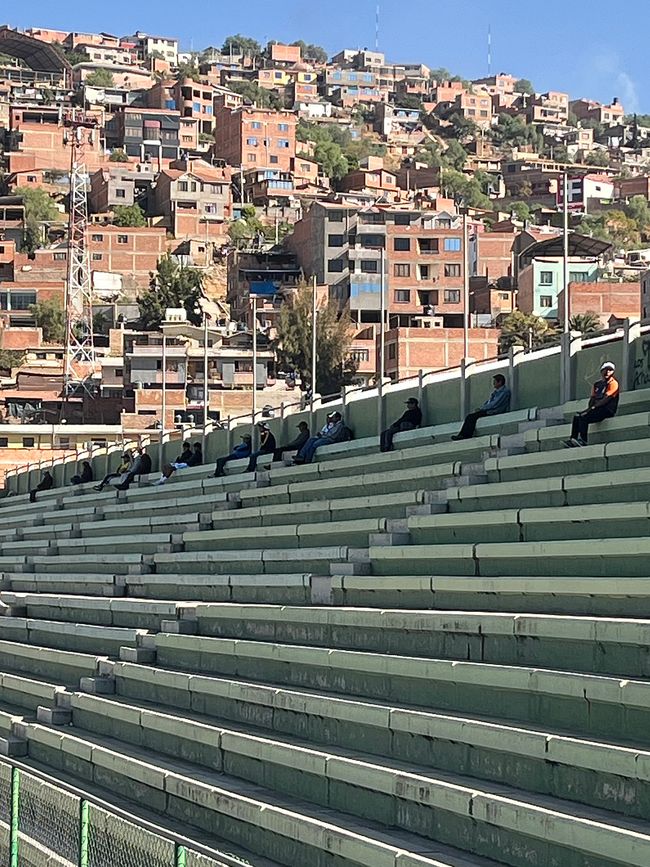
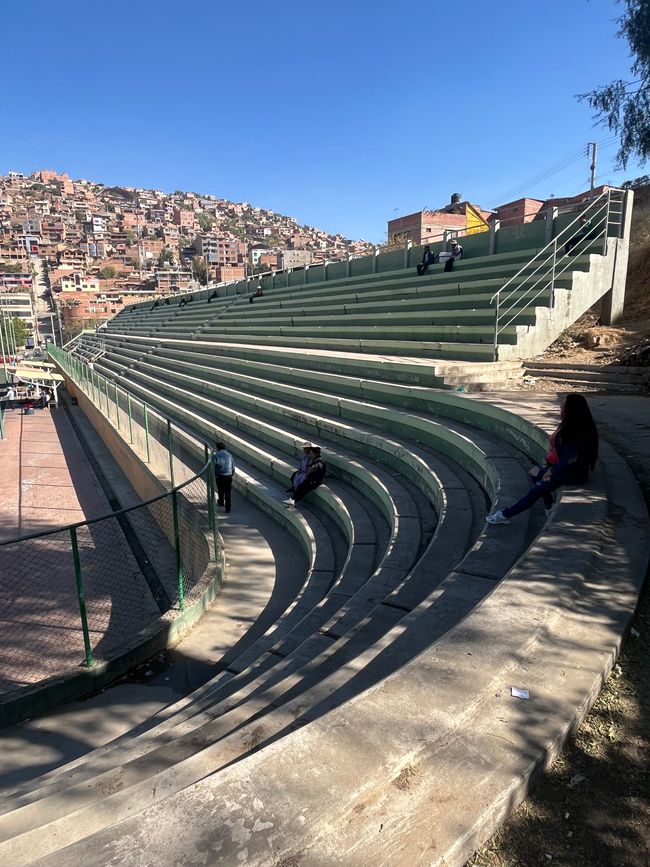
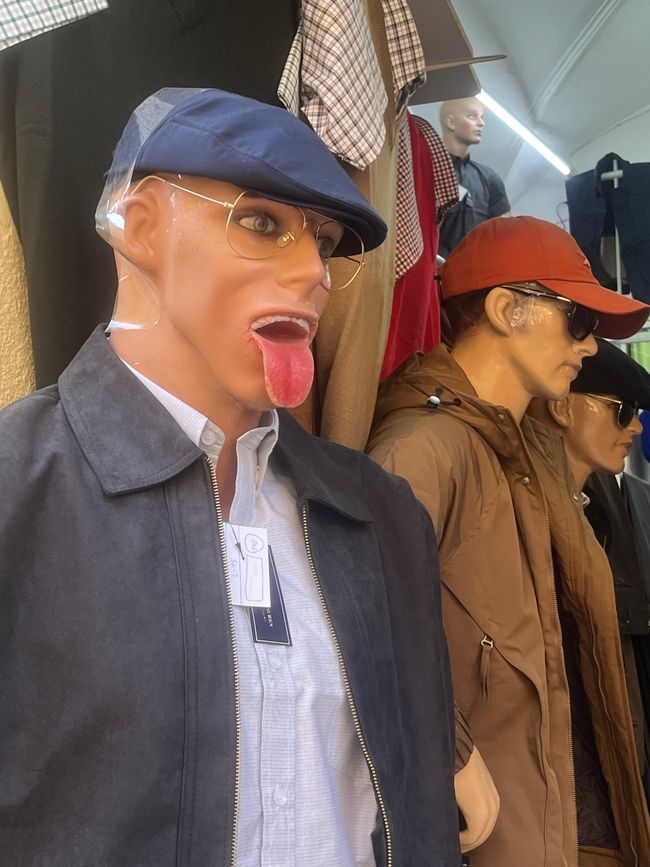
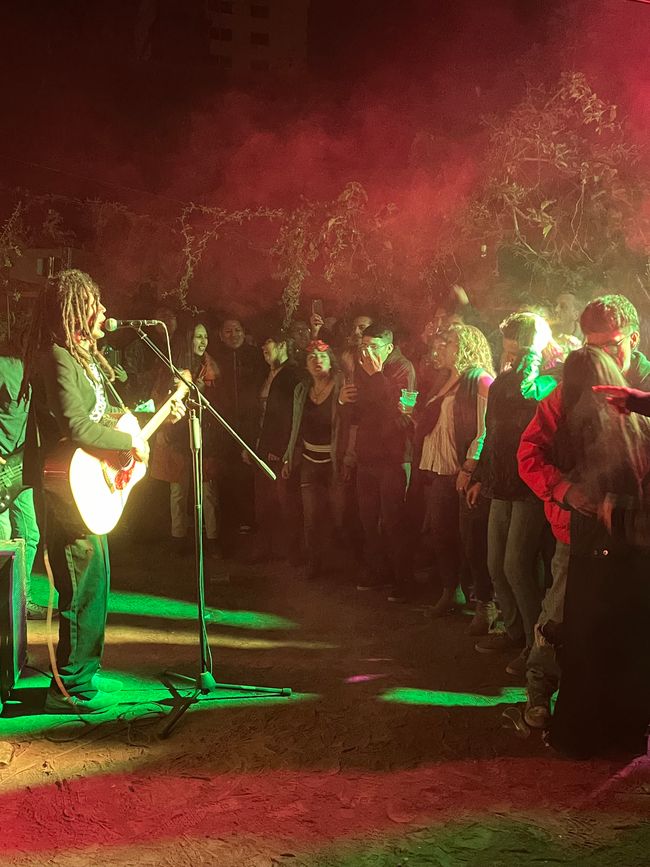
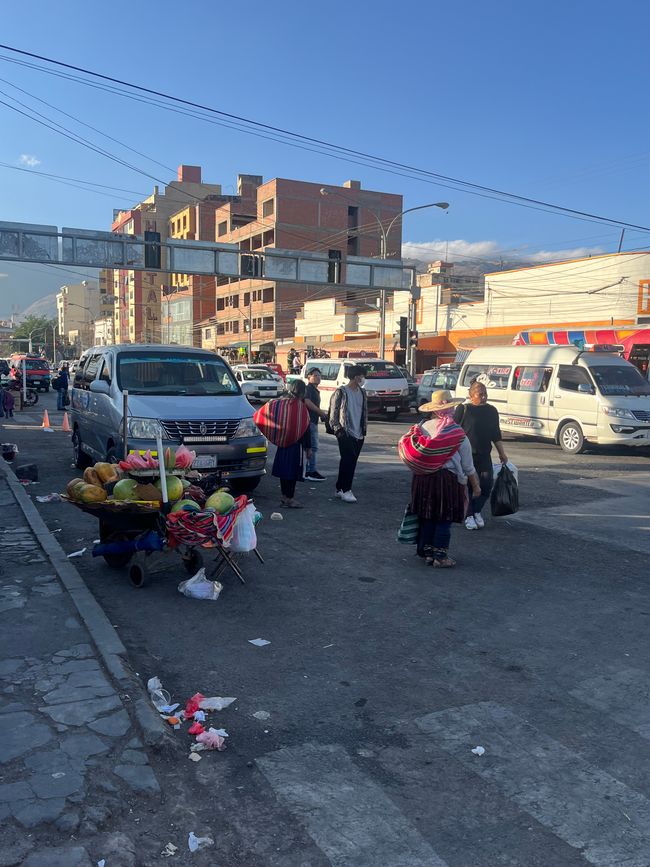
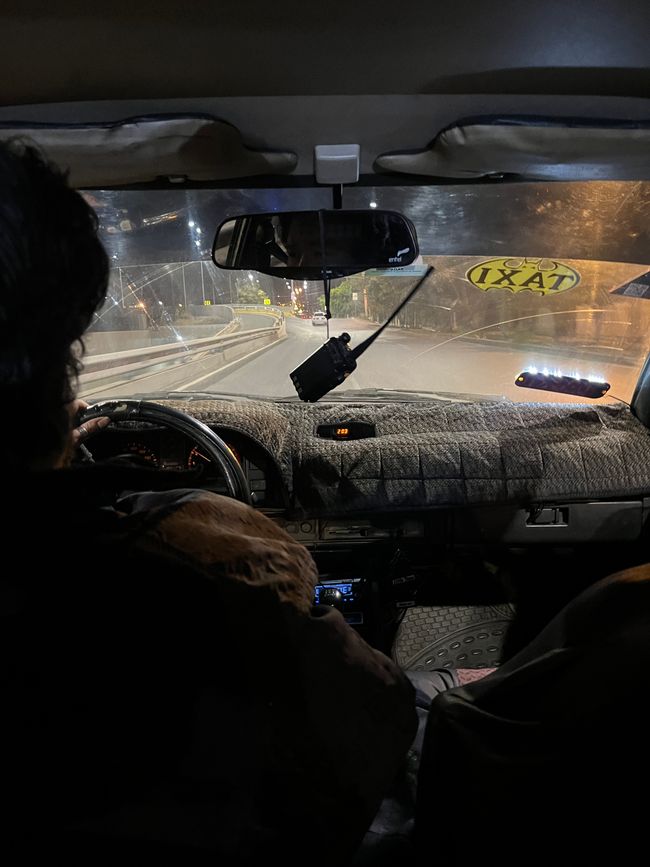
Before I get to the actual visit to the city of Cochabamba, I must first report on the journey there, as it turned out to be quite interesting and spectacular.
From Samaipata, I took a colectivo for about 30 minutes to Mairana. As I was running a bit late and the colectivo only departs when full, I bought the last remaining empty seat for about 1.50 euros and made it to the bus departure point for Cochabamba on time. The initial visual inspection of the bus did not exactly cast doubt on its roadworthiness, although the vehicle was already so worn out that operating it in Central Europe would probably not be allowed under any circumstances. Moreover, the driver, equipped with sandals, a messenger bag, and a cigarette in his mouth, left no doubt that he was exactly the right guy to maneuver this vehicle. And so the wild journey began, and after a short ride, we had to stop for the first time, as in addition to the loud noise when braking, there seemed to be a problem with the air pressure in one of the tires. At the first stop, without any help, we took breaks at regular intervals to inspect something on one of the front tires. However, it did not seem to be a fundamental problem, as the vehicle kept rolling steadily. Until we ascended into the Altiplano and reached heights over 3,000 meters, the ride was still quite relaxing. However, with a more demanding route, the driver discovered his racing genes, and with full speed and all sorts of extremely risky maneuvers, madness commenced. The bus made noises that I could no longer interpret, and looking down into the gorges with the absence of any safety precautions like guardrails or other barriers, one could only vaguely imagine the consequences should our racing driver have a weak moment here. To make the whole thing somehow bearable for me, I simply stared blankly out the side window and tried to concentrate on something else. Meanwhile, I repeatedly heard the frantic and nervous murmurs of the other passengers, and during one of the completely unnecessary overtaking maneuvers - of course, before a difficult-to-see bend - we almost rammed the bus we were overtaking. It was really a matter of centimeters, and I could touch the bus's body with my hand by extending it out the window. To make matters worse, there was also oncoming traffic, and with a loud honk, we narrowly avoided a collision, which was not the first critically dangerous situation during the ride. Some Bolivians found it too much by now and tried loudly and with wild insults to urge the driver to moderate his speed. However, he seemed to feel offended in his honor as a passenger transporter and accelerated the bus with even more vigor through the winding roads of the Altiplano. Meanwhile, a lady in the bus collapsed and fell in the middle aisle. Several passengers attempted to help her, and I also wanted to contribute with water. However, due to this freak's driving style, it was impossible to hold oneself upright, and we moved through the bus gingerly as if on eggs, while the lady rolled back and forth in the aisle. What a grotesque spectacle, like in a movie, all sorts of people were thrown around in the bus until someone finally managed to convey to the wild driver that this was an emergency situation. Finally, the driver slowed down a bit, and after some time, the woman regained consciousness. Her circulation stabilized, and the rest of the ride proceeded relatively normally.
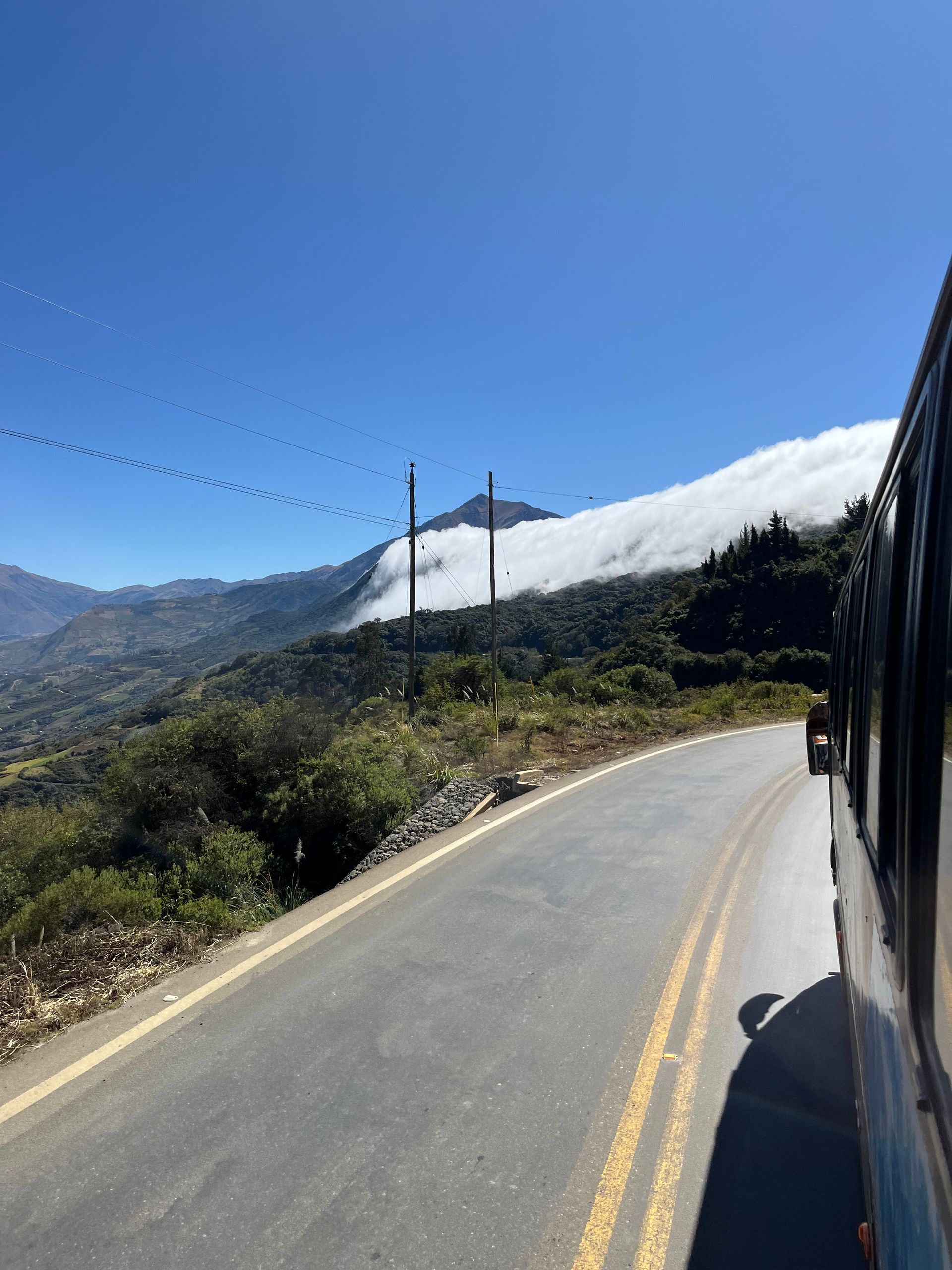
It is a pity that the circumstances of the journey only allowed for a limited enjoyment of the landscape, as it was truly breathtaking. Through different landscape zones, from the lush slopes of the Andes to the dry Altiplano with its impressive views to the relatively green valley of Cochabamba, this journey, under normal conditions, is an absolute highlight.
Upon arriving in Cochabamba, I was to meet Nim again; beforehand, I had reserved a bed in the hostel, and we went on a culinary exploration. Cochabamba is often referred to as Bolivia's food capital and is known for its rich culinary tradition and diversity. Typical dishes include “Pique Macho” (a kind of savory stew made from fried beef, potatoes, onions, and peppers, served with a spicy sauce), “Salteñas” (stuffed pastries), “Sopa de Mani” (peanut soup with beef or chicken), and “Llajwa” (a spicy salsa made from tomatoes and Rocoto chili).
Unfortunately, Nim had eaten something strange days before my arrival and had massive stomach issues. Luckily, I was spared from this and was able to enjoy and indulge in the rich and affordable offerings of local delicacies throughout my stay in the city.
What else was happening in Cochabamba? There aren’t many sights to see in the city; the main square with its surrounding buildings is quite worth seeing, but sightseeing is almost exclusively limited to this area. I also made sure to check out the local football scene and attended a match of the club Jorge Wilstermann, which is quite popular in Bolivia, and it was even an exceptionally good atmosphere for Bolivian standards.
I also visited the Cristo de la Concordia, the impressive statue of Christ on San Pedro Hill, high above the city. The statue is 34 meters tall, making it taller than the Cristo Redentor in Rio and currently the third tallest statue of Christ in the world. From San Pedro Hill, there is also an impressive view over the city and the smog that surrounds it on most days.

Overall, I spent four days in Cochabamba; one highlight was certainly the party at the hostel, featuring three live bands and genuinely great music, with various locals mingling among the hostel guests and sharing interesting stories.
In summary: Even if Cochabamba does not offer outstanding architectural or cultural highlights, the city is generally quite laid-back. The people are nice, the selection of local foods is large, and it is also quite affordable. One can spend a few relaxed days in the city without feeling like something is missing. And after such a long journey, this can be a lovely change of pace.
መልስ
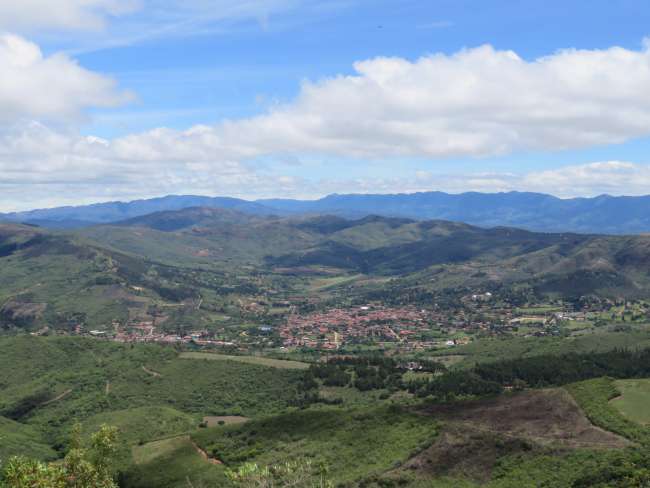
የጉዞ ሪፖርቶች ቦሊቪያ
